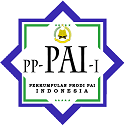Developing Children's Learning Experiences: Analysis of John Locke's Empiricism Theory in the Perspective of Islamic Education
Abstract
Keywords
Full Text:
32-44References
Abidin, A. M. (2021). Pendidikan Moral Dan Relevansinya Dengan Pendidikan Islam. Jurnal Paris Langkis, 2(1), 57–67. https://doi.org/10.37304/paris.v2i1.3282
Agbanusi, A. (2021). Empiricism And John Locke’s Epistemological Inconsistency. A Multi-Disciplinary Journal of African Studies, 1(1), 75–84.
Akbar, M. R. (2023). Pemikiran John Locke Tentang Pendidikan. Jurnal Ilmiah Guru Madrasah, 2(2), 114–123. https://doi.org/10.69548/jigm.v2i2.16
Ali Maksum. (2012). Pengantar Filsafat. Arruz Media.
Annuri, Q. N. (2021). Ḥuḍūri (Innate Idea) Sebagai Basis Pengetahuan: Studi Kritik Atas Teori Tabula Rasa John Locke Berdasarkan Prinsip Epistemologi Ṭabāṭabā’ī. 7(2), 237–254.
Arnadi, Aslan, & Arnes Yuli Vandika. (2024). Penggunaan Kecerdasan Buatan Untuk Personalisasi Pengalaman Belajar. 4(5), 369–380.
Burga, M. A. (2019). Hakikat Manusia Sebagai Makhluk Pedagogik. Al-Musannif: Journal of Islamic Education and Teacher Training, 1(1), 19–31. https://doi.org/10.5281/ZENODO.2652859
Darajat, Z. (2014). Ilmu Pendidikan Islam. Bumi Aksara.
Ezebuilo, H. C. (2020). The Rationalist And Empiricist Epistemological Strategies And Their Implications In Ethics. IGWEBUIKE: An African Journal of Arts and Humanities., 6(4), 58–81. https://doi.org/10.13140/RG.2.2.36109.97768
Fatchuroji, D. (2022). Sumber Ilmu Pengetahuan Islam Dan Barat. Maslahah: Journal of Islamic Studies, 1(1), 53–64.
Firmansyah, Mokh. I. (2019). Pendidikan Agama Islam: Pengertian, tujuan, dasar, dan fungsi. Jurnal Pendidikan Agama Islam-Ta’lim, 17(2).
Fitri, R. S. A., Hafidhuddin, D., Indra, H., & Husaini, A. (2024). Fitrah and Fitrah-Based Children’s Education Concept in the Digital Era: The Perspective from Al-Qur’an and Hadith. International Journal of Islamic Thought and Humanities, 3(1), 126–141. https://doi.org/10.54298/ijith.v3i1.213
Hafiz, A. & Suparto. (2024). Teori Pendidikan Empirisme Behaviorisme (John Locke) dalam Perspektif Pendidikan Islam. Rayah Al-Islam, 8(1), 143–160. https://doi.org/10.37274/rais.v8i1.917
Hapudin, M. S. (2021). Teori belajar dan pembelajaran: Menciptakan pembelajaran yang kreatif dan efektif. Prenada Media.
Hayati, R. S. (2020). Pendidikan lingkungan berbasis experiential learning untuk meningkatkan literasi lingkungan. Humanika, 20(1), 63–82. https://doi.org/10.21831/hum.v20i1.29039
Kolb, A. Y., & Kolb, D. A. (2022). Experiential Learning Theory as a Guide for Experiential Educators in Higher Education. Experiential Learning and Teaching in Higher Education, 1(1), 38. https://doi.org/10.46787/elthe.v1i1.3362
Kurniawan, D., Husna, A., Nurlela, M. P. F., & Zulfahmi, M. N. (2024). Analisis Pengalaman Belajar Siswa Melalui Penerapan Pendekatan Pembelajaran Aktif, Inovatif, Kreatif, Dan Menyenangkan. Jurnal Pengajaran Sekolah Dasar, 3(1), 27–35. https://doi.org/10.56855/jpsd.v3i1.893
Kurniawan, F. (2019). Pengembangan Teori Pendidikan Islam Perspektif Muhammad Jawwad Ridla (Religius Konservatif, Religius Rasional, Pragmatis Instrumental). At-Ta’lim : Media Informasi Pendidikan Islam, 18(1), 223. https://doi.org/10.29300/attalim.v18i1.1823
Mardliyah, I., & Wedi, A. (2022). Sumber Daya Fitrah Manusia Dan Pengembangannya Dalam Perspektif Pendidikan Islam. At-Ta’dib: Jurnal Ilmiah Prodi Pendidikan Agama Islam, 14–22. https://doi.org/10.47498/tadib.v14i1.877
Musdalifah, M. (2019). Peserta Didik Dalam Pandangan Nativisme, Empirisme, Dan Konvergensi. Idaarah: Jurnal Manajemen Pendidikan, 2(2), 243. https://doi.org/10.24252/idaarah.v2i2.7014
Nantara, D. (2022). Pembentukan Karakter Siswa Melalui Kegiatan di Sekolah dan Peran Guru. Jurnal Pendidikan Tambusai, 6(1).
Nisa, M. (2019). Pengaruh Pengalaman Belajar Terhadap Sikap Positif Siswa Dalam Pembelajaran Matematika di SMP NU Dukuhjati Krangkeng-Indramayu. Pediamatika: Journal of Mathematical Science and Mathematics Education, 01(01), 145–154.
Nuryamin, Eka Damayanti, Hamsah, & Suriyati. (2021). Hakikat Manusia (Perspektif Filsafat Pendidikan Islam). 13(1), 38–48.
Octaviana, D. R., & Ramadhani, R. A. (2021). Hakikat Manusia: Pengetahuan (Knowladge), Ilmu Pengetahuan (Sains), Filsafat Dan Agama. Jurnal Tawadhu, 5(2), 143–159.
Oktafia, M. N., & Budiyono, A. (2023). Perbedaan Konsep Fitrah Dengan Nativisme, Empirisme Dan Konvergensi. 4(2), 401–406.
Rahma, F. N., Hidayat, T., & Alim, A. (2022). Studi Kritis Teori Belajar Behavioristik Dalam Perspektif Pendidikan Islam. Taklim : Jurnal Pendidikan Agama Islam, 20(2), 61–82. https://doi.org/10.17509/tk.v20i2.50643
Rahmat, D. (2020). Penerapan Aliran Filsafat Empirisme dalam Manajemen Pembelajaran guna meningkatkan Kompetensi Guru di MAS Al Barakah. Rayah Al-Islam, 4(02), 334–346. https://doi.org/10.37274/rais.v4i02.345
Raikhan, R. (2021). Liberalisme dan Kesadaran Naif; Studi Kritis Pemikiran Pendidikan John Locke Dan John Dewey. Darajat: Jurnal Pendidikan Agama Islam, 4(2), 101–112. https://doi.org/10.58518/darajat.v4i2.812
Ramayulis. (2014). Profesi dan Etika Keguruan. Kalam Mulia.
Renna, H. R. P. (2022). Konsep Pendidikan Menurut John Locke dan Relevansinya bagi Pendidikan Sekolah Dasar di Wilayah Pedalaman Papua. Jurnal Papeda: Jurnal Publikasi Pendidikan Dasar, 4(1), 7–16. https://doi.org/10.36232/jurnalpendidikandasar.v4i1.1698
Roni, H. Syahroni Ma’shum, & Hinggil Permana. (2022). Analisis Aliran-Aliran Pemikiran Dalam Pendidikan Islam. 9(1), 29–34.
Rosdiana, R., & Muzakkir, M. (2019). Fitrah Perspektif Hadis dan Implikasinya terhadap Konsep Pendidikan Islam Mengenai Perkembangan Manusia. Al-Musannif, 1(2), 96–110. https://doi.org/10.56324/al-musannif.v1i2.30
Rosyadi, Mokh. I. (2017). Pembelajaran Pendidikan Agama Islam Berbasis Pengalaman: Urgensi dan Implementasi. Edukasia Islamika, 291. https://doi.org/10.28918/jei.v2i2.1673
Ruhendi, A., & Kosim, N. (2022). Developing Arabic Language Teachers’ Competence and Performance through Teacher Profession Education. Jurnal Pendidikan Islam, 8(1), 37–50. https://doi.org/10.15575/jpi.v8i1.18243
Simbolon, N., & Siregar, A. K. (2021). Sumber Ilmu Pengetahuan Dalam Manajemen Pendidikan. Darul Ilmi: Jurnal Ilmu Kependidikan dan Keislaman, 9(1), 69–83. https://doi.org/10.24952/di.v9i1.3526
Siregar, A. F., Asyiaty, I. L., Agustin, B. I., Hidayat, N., & Himam, A. S. (2024). The Relevance of Islamic Character Education According “The 7 Habits of Highly Effective People” Book. J-PAI: Jurnal Pendidikan Agama Islam, 10(2). https://doi.org/10.18860/jpai.v10i2.25276
Sutisna, A. (2021). Metode Penelitian Kualitatif Bidang Pendidikan. UNJ Press.
Triandini, S. (2020). Paradigma John Locke Terjadap Perkembangan Pendidikan Anak Usia Dini Di Era Milenial. 1(1), 32–38.
Ulfiani, D. Y., Azani, M. Z., & Jamuin, M. (2022). Convergence Theory in Islamic Perspective (Study of Fitrah Education in Qs. Ar-Rūm Verse 30): International Conference on Islamic and Muhammadiyah Studies (ICIMS 2022), Surakarta, Indonesia. https://doi.org/10.2991/assehr.k.220708.032
Weu, G., Mbabho, F., & Ansel, M. F. (2023). Implikasi Teori Empirisme Dalam Pelaksanaan Pendidikan Di Sekolah Dasar. Jurnal Pendidikan Dasar Flobamorata, 4(1), 471–476. https://doi.org/10.51494/jpdf.v4i1.848
DOI: https://doi.org/10.18860/jpai.v11i1.29683
Refbacks
- There are currently no refbacks.
Copyright (c) 2024 Yulianisa Dewi Kunthi, Suwendi Suwendi
License URL: https://creativecommons.org/licenses/by-sa/4.0/
...............................................................................................................................................................
Editorial Office:
Fakultas Ilmu Tarbiyah dan Keguruan
Universitas Islam Negeri Maulana Malik Ibrahim Malang
Jalan Gajayana 50 Malang, Jawa Timur, Indonesia 65144
Phone (0341) 552398, Faximile (0341) 552398
E-mail: jpai@uin-malang.ac.id
...............................................................................................................................................................

J-PAI: Jurnal Pendidikan Agama Islam is licensed under a CC BY-SA 4.0.
...............................................................................................................................................................
Indexed by:


















